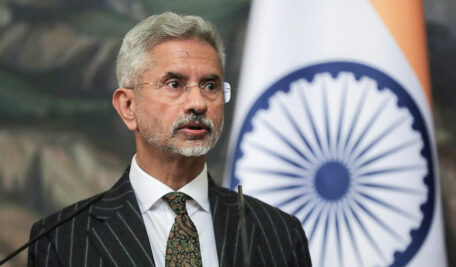Editorial: Pragmatic Outreach

India needs to keep communication lines open and prevent Afghanistan from becoming a sanctuary for anti-India terror groups
Published Date – 18 May 2025, 11:59 PM

India’s recent outreach to the Taliban regime in Afghanistan may have raised many eyebrows in diplomatic circles, but it must be seen as a masterful manoeuvre in the light of efforts to expose Pakistan’s support for cross-border terrorism. External Affairs Minister S Jaishankar’s phone call to Afghanistan’s acting Foreign Minister Amir Khan Muttaqi to thank him for condemning the Pahalgam terror attack scripts a new chapter in regional dynamics. The call assumes significance as it was the first ministerial-level outreach by India to the Taliban since it captured power in Kabul in August 2021. It was a well-calibrated and pragmatic move, given the growing hostilities between Afghanistan and Pakistan. The conversation took place days after the India-Pakistan ceasefire. Earlier, in January this year, Foreign Secretary Vikram Misri met Muttaqi in Dubai. In a post on X, Jaishankar welcomed Muttaqi’s “firm rejection” of Pakistan’s “recent attempts to create distrust between India and Afghanistan through false and baseless reports”. This was in reference to reports in Pakistan that Indian missiles had hit Afghanistan during ‘Operation Sindoor’. Amid a widening rift between Taliban 2.0 and Pakistan, India needs to keep communication lines open and prevent Afghanistan from becoming a sanctuary for anti-India terror groups. Like most other countries, India too has not yet officially recognised the Taliban but has been steadily increasing the level of engagement with the regime. The Taliban administration has consistently signalled its eagerness to improve relations with India, while the relationship with Islamabad has steadily deteriorated.
Shedding its initial hesitation, New Delhi started opening up to the changed realities. The relations warmed up in January after New Delhi sided with Kabul in its stand-off with Pakistan over Pakistani airstrikes in the Afghan province of Paktika, purportedly to target the terrorist organisation, Tehreek-e-Taliban Pakistan. India’s engagement with the Taliban has been measured and steady, guided purely by national interests. The Indian embassy was reopened in June 2024, soon followed by a public meeting in January this year between Foreign Secretary Vikram Misri and Muttaqi in Dubai. Since August 2021, India has been regularly delivering wheat, pesticides, medical supplies and other forms of aid. Even in the Union Budget for 2024-25, there was an allocation of Rs 100 crore for assistance to Afghanistan. New Delhi has signalled that its strategic and economic interests will take precedence over everything else. When the Taliban stormed back into power in August 2021, following the withdrawal of the American troops from the war-torn country, it was widely seen as a major setback to India’s regional policy and a big gain for Pakistan. However, since then, the Taliban regime has consistently signalled its eagerness to improve relations with India, while the relationship with Islamabad has steadily deteriorated. India and Afghanistan share a deep cultural bond between their people, irrespective of the nature of the regime in Kabul.






